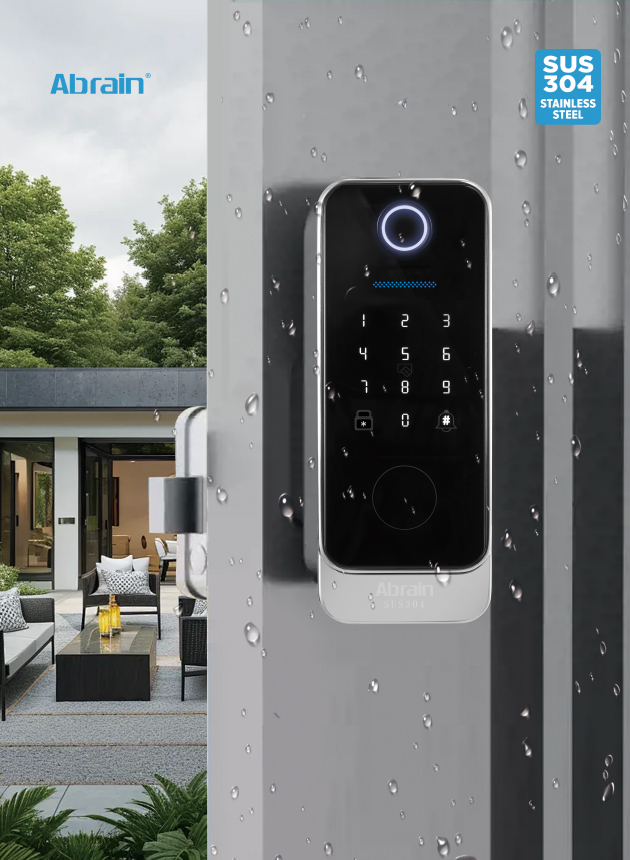The Cost-Effectiveness of Waterproof Smart Locks
A waterproof smart lock is a type of electronic lock engineered to resist moisture, rain, dust, and other environmental factors. Unlike standard smart locks intended mainly for indoor use, waterproof models are suitable for outdoor doors, gates, garages, and entryways exposed to the elements. These locks integrate advanced features such as keyless entry, remote control, biometric recognition, and real-time monitoring, all protected within a weather-resistant casing.

Initial Cost vs. Traditional Locks
At glance, waterproof smart locks tend to have a higher upfront cost than traditional mechanical locks or standard electronic locks. Prices can vary depending on brand, technology, and features, but generally, they range from a few hundred to over a thousand dollars.
Traditional locks, by comparison, are inexpensive and widely available, making them an appealing option for budget-conscious buyers. However, focusing solely on initial purchase price overlooks the broader picture of total ownership cost and overall value.
Longevity and Durability
One of the primary contributors to the cost-effectiveness of waterproof smart locks is their enhanced durability. Because these locks are built to withstand exposure to rain, humidity, dust, and temperature fluctuations, they tend to have a longer lifespan in outdoor environments compared to non-waterproof electronic locks.
Traditional locks or even non-waterproof smart locks used outdoors may suffer from rust, corrosion, or internal component failure, bring about frequent replacements or repairs. Over time, these maintenance and replacement expenses can accumulate, potentially surpassing the higher initial cost of a quality waterproof smart lock.
Security and Convenience Benefits
Waterproof smart locks offer security features that go well beyond traditional mechanical locks. They often include encrypted digital access, fingerprint scanning, temporary codes, and smartphone integration. These capabilities reduce risks related to lost or duplicated keys, unauthorized access, and lock picking.
The convenience factor also translates into practical cost savings. For example, property managers or homeowners can grant temporary access to guests, service personnel, or delivery workers without the expense of physical key duplication or rekeying locks. Remote monitoring and control capabilities allow users to manage access from anywhere, reducing the need for physical presence or locksmith services.
Energy Efficiency and Low Maintenance
Waterproof smart locks are designed with energy-efficient components, often running on long-lasting batteries that require minimal replacement frequency. Additionally, because these locks are sealed to prevent water and dust ingress, they demand less routine maintenance compared to exposed mechanical parts in traditional locks.
Reduced maintenance needs mean lower ongoing costs, less downtime, and fewer disruptions, contributing to the overall cost-effectiveness.
Integration with Smart Home Ecosystems
Many waterproof smart locks seamlessly integrate with broader smart home systems, including security cameras, alarms, lighting, and voice assistants. This integration enhances the overall value of the lock by contributing to a more comprehensive and automated home security solution.
While the initial investment may be higher, the combined functionality and synergy with other devices can improve safety, convenience, and energy management, delivering cost benefits that extend beyond the lock itself.
Potential Drawbacks and Considerations
Despite their advantages, it is important to consider some potential drawbacks. Waterproof smart locks rely on electronic components and power sources, which means batteries will eventually need replacement. While infrequent, this is a recurring cost.
Moreover, users should be aware of compatibility requirements with existing door hardware and ensure proper installation to maximize durability and performance. The initial setup and configuration may require professional assistance, which could add to the upfront cost.
Lastly, buyers should research the reputation and customer support of the lock manufacturer, as quality and after-sales service impact the long-term value of the product.


